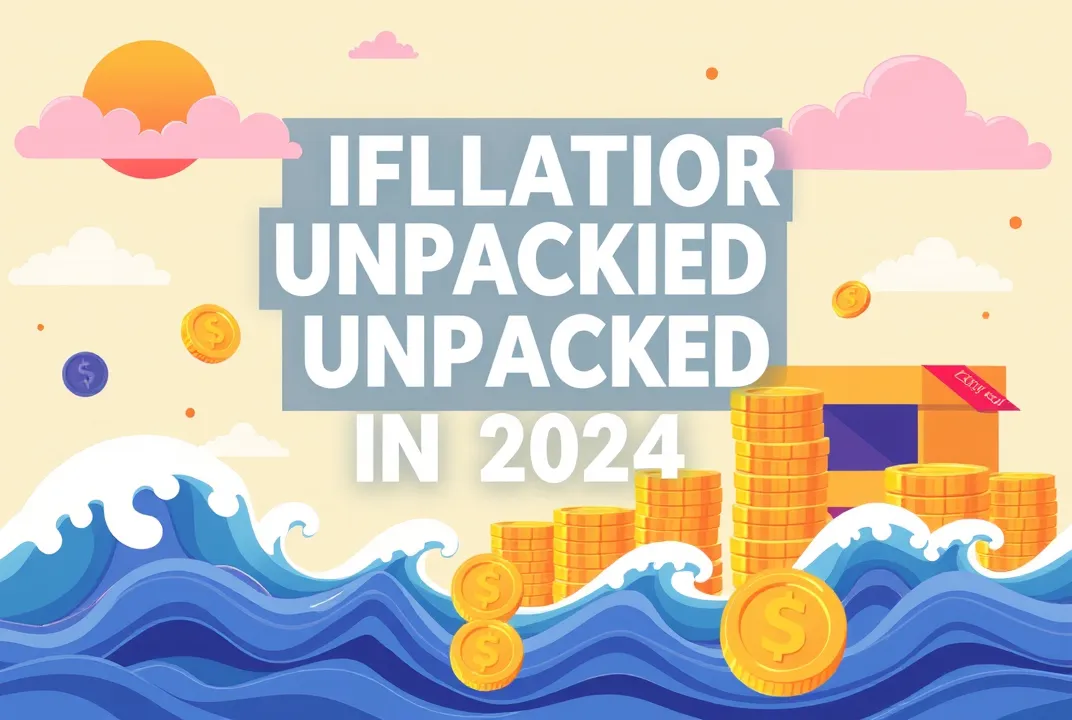Understanding Inflation: The Landscape of 2024
As the sun rises on a new year, the global economy finds itself amidst a changing landscape, with inflation at the forefront of financial discussions. The year 2024 brings a myriad of questions for consumers, businesses, and policymakers alike: How will inflation impact our daily lives? What strategies can we employ to navigate these economic waters? This blog post unpacks the complexities of inflation, exploring its causes, effects, and potential solutions in a world striving for stability.
The Inflation Narrative: A Brief Overview
Inflation, by definition, is the rate at which the general level of prices for goods and services rises, eroding purchasing power. The Consumer Price Index (CPI) has been a traditional measure of inflation, reflecting changes in the cost of a basket of goods and services over time. As we step into 2024, global inflation rates continue to oscillate, driven by various factors including supply chain disruptions, geopolitical tensions, and shifts in consumer behavior.
Recent Developments in Inflation
In the last few months, several significant developments have shaped the inflation narrative:
-
Global Supply Chain Challenges: The lingering effects of the COVID-19 pandemic have resulted in ongoing disruptions across supply chains, causing shortages in key commodities and, in turn, driving prices higher.
-
Energy Prices Volatility: Fluctuations in oil prices, exacerbated by geopolitical tensions in major oil-producing regions, continue to influence overall inflation rates. The recent OPEC decisions to cut output have put additional pressure on gas prices, impacting transportation costs.
-
Monetary Policy Adjustments: Central banks around the world, including the Federal Reserve, have adopted a cautious approach in tightening monetary policies. Interest rate hikes aim to curb inflation; however, the balance of stimulating growth while controlling inflation remains delicate.
The Effects of Inflation on Daily Life
Inflation’s impact is felt at every turn, from the grocery store to the housing market. As prices rise, consumers find themselves adjusting their budgets, often compromising on quality or quantity. The emotional toll on families is significant, as the stress of financial insecurity looms large.
Groceries and Everyday Essentials
The cost of groceries has surged, with staples such as eggs, dairy, and produce witnessing price hikes. For instance, recent reports indicate that the price of eggs rose by over 30% in the past year alone. Families are forced to reevaluate their shopping habits, with many opting for generic brands or bulk purchasing to stretch their budgets further.
Housing Market Challenges
Inflation has also permeated the housing market, with increased Interest rates making mortgages less accessible. Homebuyers face a tumultuous market where affordability becomes a pressing issue. According to the National Association of Realtors, the median home price has risen dramatically, prompting many to reconsider homeownership and explore rental options, further straining an already tight rental market.
Strategies to Navigate Inflation
While the challenges posed by inflation are daunting, there are strategies individuals and businesses can adopt to weather these economic waves.
Create a Budget and Stick to It
Crafting a detailed budget can help consumers prioritize spending. By identifying non-essential expenses, individuals can make informed decisions about where to cut back, ensuring that essential needs are met while avoiding debt accumulation.
Invest Wisely
Investing in inflation-resistant assets such as real estate, commodities, or Treasury Inflation-Protected Securities (TIPS) can help safeguard wealth against diminishing purchasing power. As markets fluctuate, diversifying investment portfolios can provide more stability.
Seek Opportunities for Side Income
In a tightening economic landscape, many are turning to side gigs or freelance work to supplement their income. The gig economy has exploded, offering opportunities in areas like online tutoring, delivery services, and freelance writing. This not only helps mitigate the effects of inflation but also provides flexibility and independence.
The Role of Policy in Addressing Inflation
On a macro level, government policy plays a crucial role in addressing inflation. Policymakers must find a delicate balance between stimulating economic growth and controlling inflation.
Fiscal Policies
Governments can implement fiscal measures, such as stimulus packages aimed at boosting consumer spending. However, the challenge lies in timing and scale. Misjudgments can lead to either runaway inflation or stifled growth.
Monetary Policies
Central banks must carefully adjust Interest rates while monitoring other economic indicators. The goal is to present a united front against inflation without hampering recovery efforts. This delicate balancing act is often met with public scrutiny, as the implications of these decisions are felt across the economy.
Conclusion: A Collective Journey Forward
As we navigate the waves of inflation in 2024, understanding its causes and effects is essential. This economic challenge requires a collective effort from consumers, businesses, and policymakers alike. By arming ourselves with knowledge, creating strategic budgets, and exploring investment opportunities, we can mitigate the impacts of inflation on our lives.
The story of inflation is one of resilience and adaptation. While economic uncertainty may loom, the strength of communities and individuals can shine through, transforming challenges into opportunities. As we collectively steer our way through this economic tide, we must remain vigilant, informed, and proactive in ensuring a stable and prosperous future.


 Riding the Bull Market: Why It's Time to Invest in Bulls for Maximum Gains
Riding the Bull Market: Why It's Time to Invest in Bulls for Maximum Gains